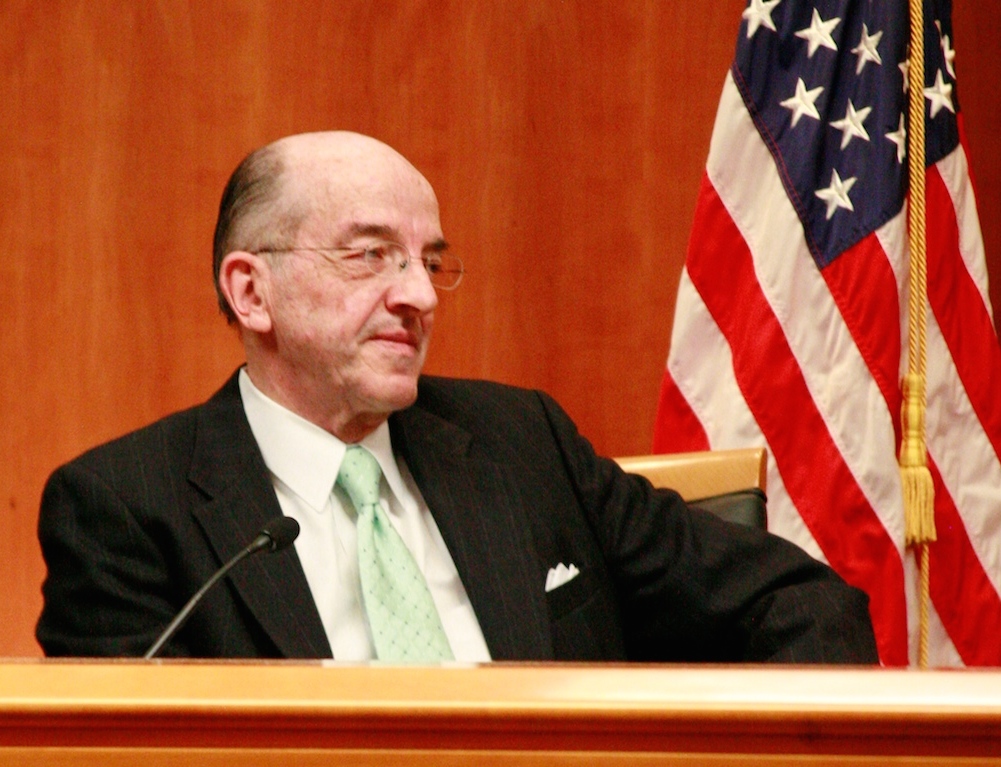Copps, McDowell Spar Over Consolidation

The smarter way to stay on top of broadcasting and cable industry. Sign up below
You are now subscribed
Your newsletter sign-up was successful
Former Democratic FCC chairman Michael Copps and former Republican commissioner Robert McDowell squared off, civilly, this week over the FCC's consideration of proposed media mergers.
The pair was appearing on C-SPAN's Communicators series to talk about their different views on mergers.
Definitely in the "or not" category was veteran media merger critic Copps, who said Comcast/Time Warner Cable should have been DOA at the FCC—he opposed the Comcast/NBCU deal when it was before the commission. "It is highly inimical to the interest of consumers and competition," he said, calling it another chapter in a never ending saga of consolidation that has "wreaked havoc."
Copps said consolidation in general is creating a "hammerlock" on news and information infrastructure.
Copps said when he went to the FCC in 2001, he didn't know he would be spending most of his time being pitched by CEOs on letting them consolidate.
McDowell, not surprisingly, had a different view, though he pointed out he had a 100% record of agreement with Copps during the 50 votes taken while the latter was chairman.
He said he was not there to weigh in for or against any particular deal, though he said he thought Comcast/TWC would be approved and, looked at through the antitrust lens, Comcast was not taking out a competitor. McDowell raised the question whether the FCC should be in the merger review business, period, given that Justice also reviews it and other types of mergers don't have that double dose of reviewing. He also said the FCC can "'extract' conditions that have nothing to do with the transactions" to accomplish public policy goals.
The smarter way to stay on top of broadcasting and cable industry. Sign up below
He said he thought there would be plenty of conditions, as there had been with Comcast/NBCU.
McDowell said since that deal, and the over-the-top access conditions placed on it, Netflix and Amazon Prime have flourished, though he did not say it was necessarily because of the conditions.
McDowell also said Comcast was responding to a dynamic market. Comcast has said the deal will allow it to become a stronger competitor to national platforms like DBS and Netflix.
"It is a very dynamic, fast-moving marketplace," he said, "and it is the best time ever to be a consumer of voice, video and data services," saying they were "awash in choices."
Asked about AT&T/DirecTV, McDowell said he expected the deal to go through as well, and said it was driven by content AT&T will now be delivering over mobile platforms.
Copps said the government "needed to learn to say no" to some of these deals, suggesting the country would be better off.
"We have to get serious about competition," he said. He suggested one opportunity to get serious about competition would be to open up the spectrum auctions to small businesses, minorities and women, who had been so "woefully disserved" in the communications business generally. "We don't have to throw in the towel on consolidation," he said. "Policy has gotten us into this mess, policy can get us out of it."
McDowell took issue with the premise that there was a mess that the country needed extricating from, echoing that it was the best time to be a consumer of media.
Contributing editor John Eggerton has been an editor and/or writer on media regulation, legislation and policy for over four decades, including covering the FCC, FTC, Congress, the major media trade associations, and the federal courts. In addition to Multichannel News and Broadcasting + Cable, his work has appeared in Radio World, TV Technology, TV Fax, This Week in Consumer Electronics, Variety and the Encyclopedia Britannica.

